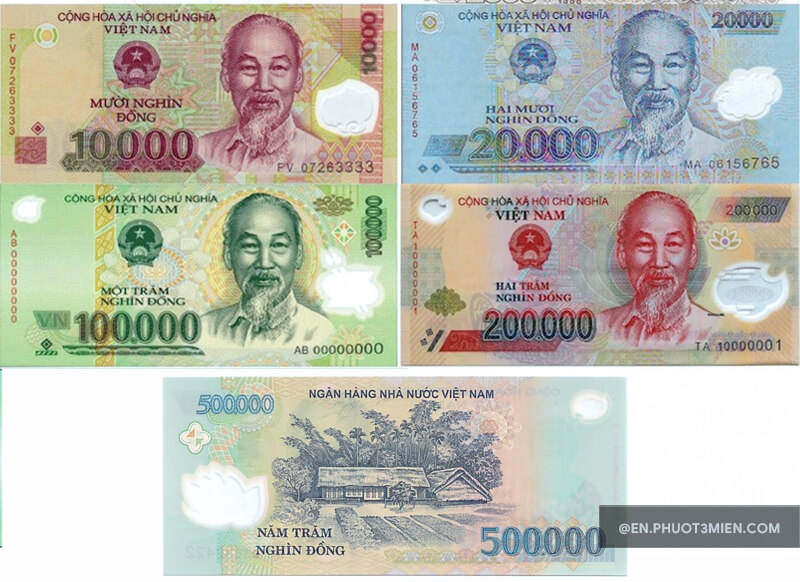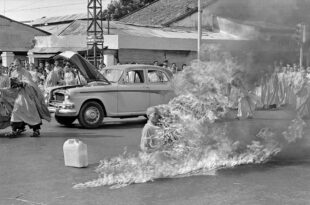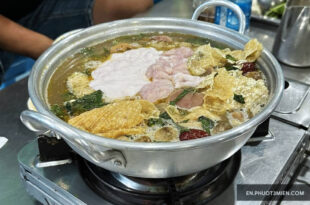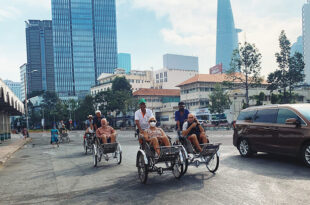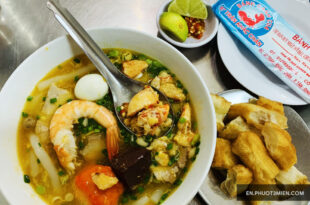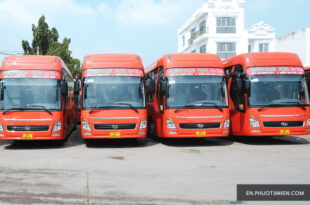Just like in other countries, you will want to know the basic rules and tips on using cash, credit cards, and ATMs in Vietnam. Vietnam is just a little different, and it will feel different indeed if you have never been to Southeast Asia.
Cash in Vietnam
Exchanging Money
In Vietnam, people still use cash to settle most monetary transactions. Plus, sidewalk sales are everywhere in the country, and these types of stalls never accept cards, so you must bring cash with you at all times.
For your information, the official currency used in Vietnam is the Vietnamese Dong (VND). Although the US Dollar is also widely accepted in big cities (Ha Noi, Ho Chi Minh, and Da Nang), and tourist attractions, payments using VND are still more convenient to the buyer and seller. Other foreign currencies are rarely accepted, and if they are, the sellers offer a ridiculous exchange rate. So it’s better to exchange your cash into VND in advance.
Where to Exchange
At Tan Son Nhat Airport (HCMC) and Noi Bai Airport (Ha Noi), you will find some Vietin Bank and Exim Bank currency exchange stalls after immigration and customs. However, these booths usually apply an unfavorable exchange rate, just like in all airports. Therefore, you should only change a small sum enough to cover your taxi fare and other necessities, and then head to town for a better rate.
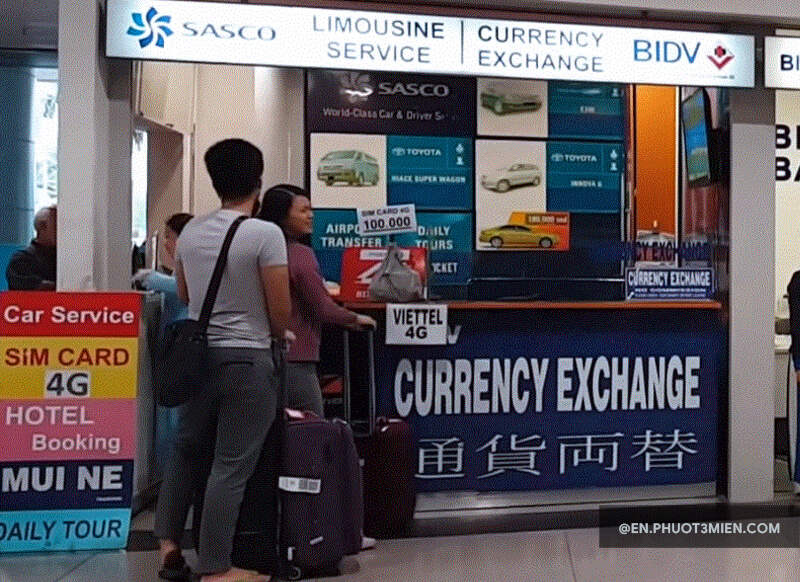
Legally operating money exchangers are definitely a safer choice. You can easily find currency exchange counters of popular banks in Vietnam, like Eximbank, Vietinbank, Agribank, etc, around the city. However, if small differences don’t really matter to you, gold shops offer you a more time-saving and convenient option. Just randomly pick a gold shop in Ha Trung Street (Hanoi) or the neighbor around Ben Thanh Market (Ho Chi Minh City) and change your money.
When exchanging money at gold shops, make sure to check the exchange rates in advance.
Check this link:https://portal.vietcombank.com.vn/en-Us/Personal/TG/Pages/exchange-rate.aspx
On the website of Vietcombank to receive updated exchange rate information of many currencies. Shop around at various gold shops to find the best rate. Then, just exchange money! No document is needed. The process is very quick and easy.
Banks & ATMs
Under Vietnamese law, ATMs will only dispense VND, even when your account is based in your home country. The amount of money you want to withdraw will be automatically changed from your home currency to VND based on the bank quoted rate at that time.
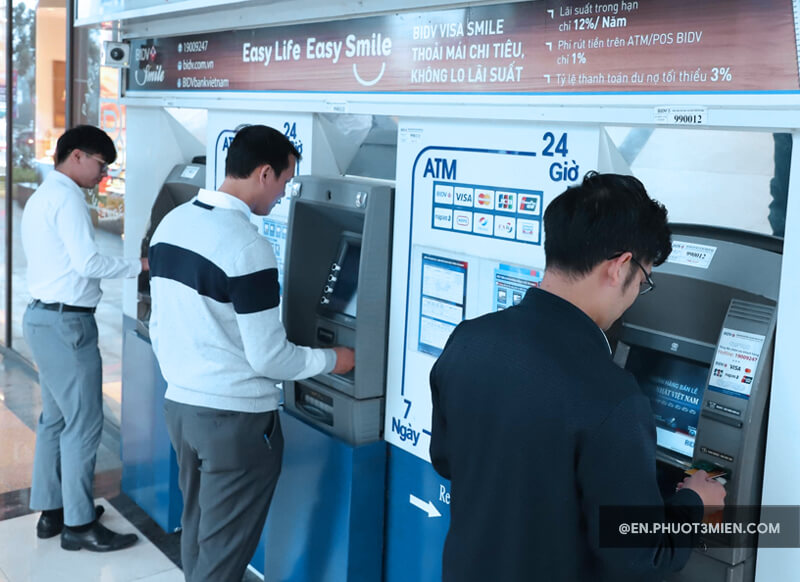
Where to Find ATMs
Currently, ATMs are located everywhere in big cities like Saigon, Ha Noi, and Da Nang, especially around the tourist areas. ATMs in Vietnam operate 24/7 so you can go to one anytime you need more cash. Use Google Maps to locate the nearest ATM to you or look up the aforementioned banks on Google and you will be able to locate their ATMs.
Withdrawal Fee & Limit of Each Bank
Although most ATMs accept different kinds of cards, including Master Card, Visa, Union Pay, and JCB, remember to check the signs by each ATM that indicate the cards they accept. You don’t want your card to be stuck. The regulations on the maximum amount allowed to be withdrawn and the withdrawal fee for each transaction vary from bank to bank but ATMs of local banks allow rather low per-transaction withdrawal limits compared to the international rivals.
KKday is a travel APP platform offering over 20,000+ online products such as: tickets for amusement parks, outdoor services, sightseeing tours, culinary experiences, transportation, accommodation, courses, and local culture... Currently, there is a summer promotion with discounts up to 50% and coupons up to 250K VND off.

Attractive discount codes such as: 100K VND off for new accounts, 150K VND off summer promotion, 250K VND off, KKday birthday celebration...
The current limit amount per transaction at local banks’ ATMs is relatively low, ranging from 2,000,000 VND to 5,000,000 VND. Meanwhile, that of global providers can be up to 8,000,000 VND (Citibank) or 10,000,000 VND (ANZ). Do note that ATMs in big cities have a higher per transaction maximum limit than those located in the suburbs.
In terms of the transaction fee, an additional usage charge ranging from 40,000 VND (~2 USD) to 100,000 VND (~5 USD) is generally added every time you withdraw money from ATMs. You can avoid this fee by choosing ATMs from the same bank or banks linked to your home bank. Until now, there is no Vietnamese bank giving customer free withdrawals from foreign accounts. That means international banks are the only option. The international banks that have a wide range of ATMs in Vietnam include ANZ, Citibank, HSBC, and Standard Chartered.
Surely, you don’t want to lose five dollars for withdrawing only 50 dollars. That is 10%. Choose foreign bank ATMs that give a larger sum each time to minimize the total fee you have to pay, and avoid getting money from ATMs too frequently.
Payment by Card
You May Be Unable to Pay by Card…
In Vietnam, you will probably find that common credit/debit cards are widely accepted in tourist sites and places like hotels, high-end restaurants, shopping malls, spas, cinemas, etc. Sometimes taxis also have a credit card machine. However, for other services, make sure there is a sign of cards acceptance or that you ask the staff in advance. Obviously, sidewalk stalls won’t accept card either. Therefore, ensure you carry some cash at all times.
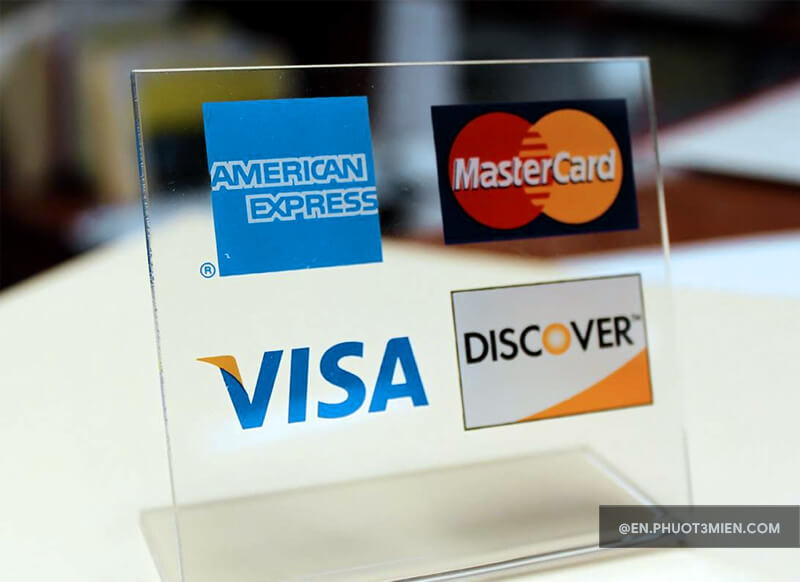
Make a Notice to You Card Provider…
Having a credit card for use in emergencies is undoubtedly a smart backup plan. But make sure to inform the card issuing bank about your plan to go overseas since you don’t want your card to be suspended or locked due to unusual payments. One more thing, note down the contact number of your card provider. So that you can make a call whenever there is an issue or concern.
A Surcharge May Be Applied…
Be aware that a charge of 3 – 4% (or 1 USD – 3 USD) may be added as a commission, which the establishment has to return to the bank receivables. However, this surcharge is not fixed. It tends to be larger in small business retailers and smaller in upscale and well-organized service providers.
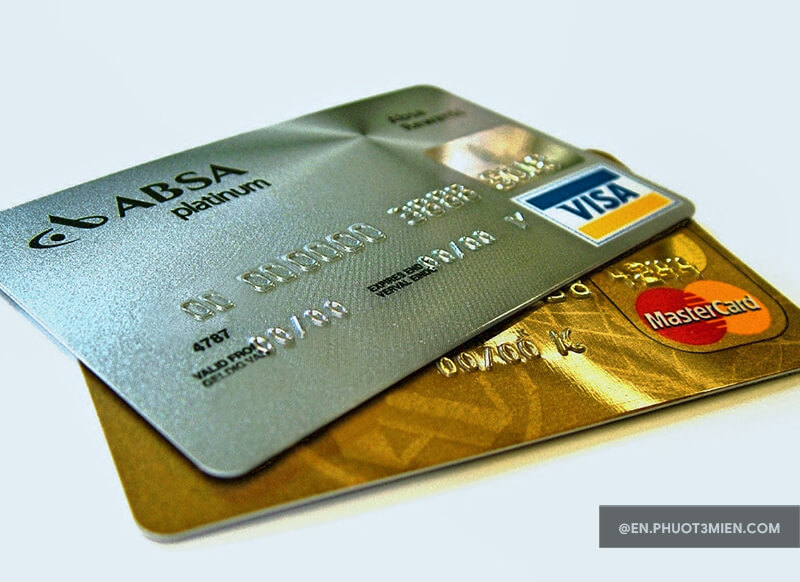
Pay with Local Currency…
Which one is better, making payments using your home currency or the local currency?
Not only in Vietnam, but generally when making a purchase anywhere abroad, the merchant may ask whether you want to be charged in your home currency or the local currency. This is called Dynamic Currency Conversion (DCC). With DCC, if you opt to pay in your home currency, and the merchant converts the purchase from the local currency on your behalf. However, this leaves you exposed to hidden fees, as the base rate used may be terrible. Always opt to pay in Vietnamese Dong instead.
In a nutshell, using VND is still the best choice to minimize your travel budget. We can count on ATMs and credit cards in emergency situations but don’t depend entirely on them. Choose wisely and you will save a bunch of money!
Read more: A Beginners Guide to Mobile in Saigon
If you enjoyed reading this article and would like some more fun info about what to see, do, and eat (and a bunch of interesting cafes!) in Vietnam, follow us at the Travel Blog!
